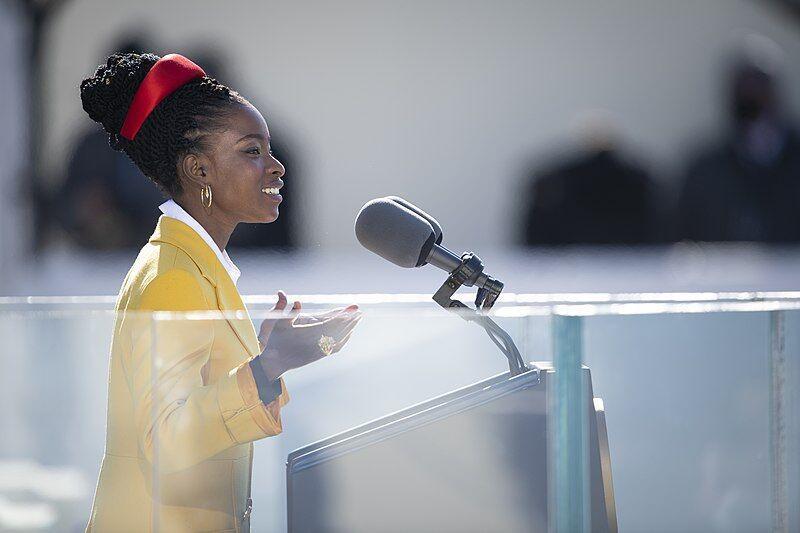Wednesday’s presidential inauguration was, among other things, a much-needed spectacle of civic pride and renewal.
With the ceremony marking such a critical in American politics, I was somewhat surprised to see Amanda Gorman, the 22-year-old poet who rang in the new administration with her piece “The Hill We Climb,” among the undisputed breakout stars of the day.
In the hours and days following the inauguration, my social media feeds were flooded with quotes, videos and op-eds all praising the young poet as a literary force of nature; the voice of a new age.
I, on the other hand, have not been so quick to follow suit.
Oscar Wilde famously remarked that all bad poetry “springs from genuine feeling. To be natural is to be obvious, and to be obvious is to be inartistic.”
Gorman’s Jan. 20 performance, while undoubtedly sincere and full of laudable optimism, was painfully obvious.
It hurts to say. As an English major and longtime lover of poetry, I myself was especially eager to experience the time-honored tradition of the inaugural verse, a tradition made famous by legendary literary figures like Robert Frost and Maya Angelou.
Every ounce of me wanted to love the performance, not only for my personal enjoyment of the craft but for what such a moment could have meant for American literature as a whole.
Gorman is young, fashionable and connected to the realities of a new generation; adolescents and twenty-somethings who might be reticent to see poetry as an art that has anything to offer them.
Working within a genre that most Americans — especially younger Americans — likely associate with the difficult, esoteric old men they were forced to study in school, Gorman is certainly a breath of fresh air to the public imagination.
However, it seems the public response to “The Hill We Climb” points to a deeply rooted problem with how our culture understands the purpose of the arts.
Looking through countless praises of Gorman’s performance, something became quite clear to me: almost no one was raving about “The Hill We Climb” because of its aesthetic qualities, its skillful wielding of language into poetic greatness.
Rather, people appear to be much more enthused by the poet’s moral vision for the nation.
Although not particularly original, Gorman’s call for political unity is one that all of us can and should be on board with. There is certainly a beautiful message here — a righteousness — that deserves its time on the national stage.
That said, a poem cannot stand on its moral merit alone. In fact, I might even go as far as saying that the value of a poem has nearly nothing to do with the moral correctness of its content.
What we witnessed on Wednesday was a poem so determined to make a concrete moral statement that it gave way into what much more closely resembles a banal political address, platitudes and all, with inflected speech and a sprinkle of distasteful rhyming as its only literary signifiers.
In “The Hill We Climb,” Gorman writes:
“To compose a country committed to all cultures, colors, characters and conditions of man. / And so we lift our gaze, not to what stands between us, but what stands before us. / We close the divide because we know to put our future first, we must first put our differences aside.”
In an interview with CBS This Morning following her performance, Gorman even seemed to confer that her primary intent for the piece was not aesthetic, stating that she “wanted it to be a message of hope and unity…to not turn a blind eye to the cracks that need to be filled.”
Again, these are worthy intentions; but where was the drama, the fireworks — the poetry?
For reference, here is a brief excerpt from Maya Angelou’s “On the Pulse of the Morning,” which she read at Bill Clinton’s 1993 Inauguration ceremony.
“Today, the first and last of every tree / Speaks to humankind. Come to me, here beside the river. / Plant yourself beside me, here beside the river. / Each of you, descendant of some passed on / Traveller, has been paid for.”
Similar to “The Hill We Climb,” Angelou’s inaugural verse invokes an admirable desire for unity. However, through spectacular strokes of metaphor and imagery, Angelou plates with gold what Gorman says plainly.
The inaugural poem is an opportunity to aestheticize and mythologize the state of the American condition. After a year like 2020, such a moment was needed more than ever. By being “obvious,” as Oscar Wilde would say, Gorman sacrificed this moment on the altar of banal political platitudes.
Evan Leonhard is a 20-year-old English and philosophy sophomore from New Orleans.
Opinion: Gorman’s ‘The Hill We Climb’ a well-intentioned but underwhelming piece of poetry
January 23, 2021








